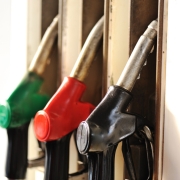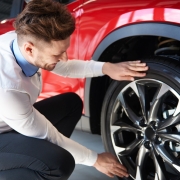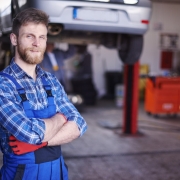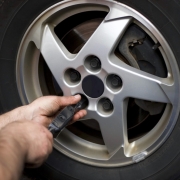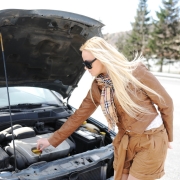Is My Car’s Air Filter Making Me Sick?
Cars and trucks have become a necessary part of everyday life. According to Zippia, 9.2 million United States vehicles were produced in 2021 alone. These cars come with several components that all work together. One of these components is an air filter. However, an air filter can make you sick even if it helps your car run. These are the signs that show it’s time to call a local auto repair shop for a replacement.
Respiratory Problems
A clogged air filter often increases allergens in the air. More dust and allergens, like pollen, circulate throughout the vehicle, usually worsening symptoms in people with respiratory conditions like allergies or asthma. If you notice that your allergies or asthma are worse than usual, contact a local auto repair shop to have your filter inspected.
Pollutant Exposure
Air filters also help filter out pollutants in the air from exhaust fumes. However, a dirty filter cannot correctly do its job, meaning you’ll be exposed to these pollutants. Over time, poor air quality can cause respiratory symptoms, such as sore throat, headaches, dizziness, and more. If you notice any of these symptoms while you’re driving, it’s time to contact professionals to look at your air filter.
Reduced Air Flow
The most common sign that you need a new air filter is that the airflow coming through your vents feels weak. You may notice that there is no airflow at all. To check if this is the case, crank the heat in your car on high. Then, hold your hand in front of the vents. If barely any air comes out, you must schedule an inspection to determine if the air filter is the underlying cause.
Dusty Interior
Another common sign of an air filter problem is more dust inside the car. The air filter typically filters out dust so it doesn’t come into the vehicle. However, an air filter that doesn’t work correctly can’t filter out the dust. It will quickly make its way inside the car via the vents. If you notice that you have to wipe off your dashboard more frequently because there’s a thick layer of dust, you probably need a new air filter.
We understand that it can be hard to determine whether you have worsening allergies or if the air filter in your car is making you sick. Our professional technicians at our auto repair shop can thoroughly evaluate your vehicle to determine if the air filter is the culprit. Give us a call at Melton Automotive today to schedule an appointment to check your air filter.


